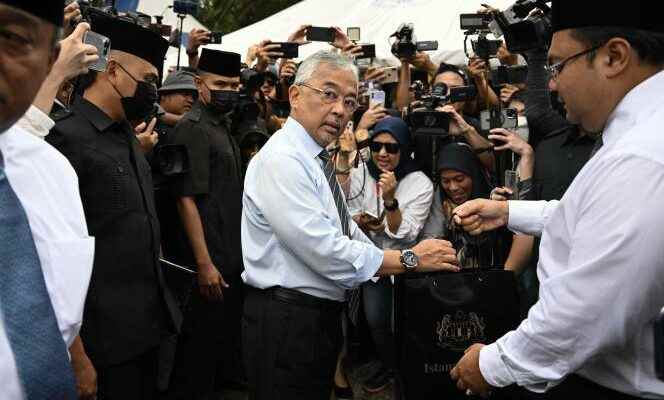Two days after the legislative elections of November 19, Malaysia and its 33 million citizens have no Prime Minister: none of the three major coalitions in the running has in fact obtained the necessary majority of 112 seats (out of the 222 that counts Parliament) to win. The contenders for power were to submit by Monday afternoon to King Abdullah – one of nine sultans from the States of the Federation of Malaysia, who succeed each other every five years – a list of parliamentarians capable of forming a majority. In vain: this deadline has been extended by 24 hours, a sign that the negotiations are difficult.
After two years of contested management of Covid-19 and reversals of alliances which saw the fall of two governments, Saturday’s elections were first marked by an extension of the electorate: 6 million voters, or 40 % more than in 2018 (during the last legislative elections), were called to go to the polls following the lowering of the voting age limit from 21 to 18 years and the adoption of a system of automatic recording of registrations. Attendance was 74%, however lower than in 2018.
Unexpectedly, the Barisan Nasional, the coalition organized around the National Organization of Malay Unity (UMNO), which finished in third position with 30 seats – the worst score in its history – became the arbiter of the ongoing reconfiguration. His anticipated rallying to the Coalition of Hope (Pakatan Harapan), led by the historic leader of the opposition, Anwar Ibrahim, holder of the largest number of seats (82), seems apparently against nature: Pakatan Harapan led campaign on the former ruling party’s corruption cases. She has constantly denounced Najib Razak, the former prime minister sentenced to twelve years in prison in August 2022 following the 1MDB sovereign wealth fund scandal, and the current president of UMNO, Zahid Hamidi, on which weigh dozens of corruption charges, a “court clique” which seeks by all means to be, for the first, amnesty, and for the second, exonerated.
49 seats for the Malaysian Islamic Party
UMNO was also ousted from power for the first time in 2018, after sixty years of unchallenged rule over Malaysian politics, by the Pakatan Harapan. The new government, then led by former Malaysian number one Mahathir Mohamad, who returned to power at 92, passed a number of reforms before losing control 22 months later to defectors led by Muhyiddin Yassin, backed by UMNO. A year later, the latter would be forced to cede power to his coalition partner who had returned to business with, as prime minister, a reputed figure of integrity from UMNO: Ismail Sabri Yaakob.
You have 60.91% of this article left to read. The following is for subscribers only.
